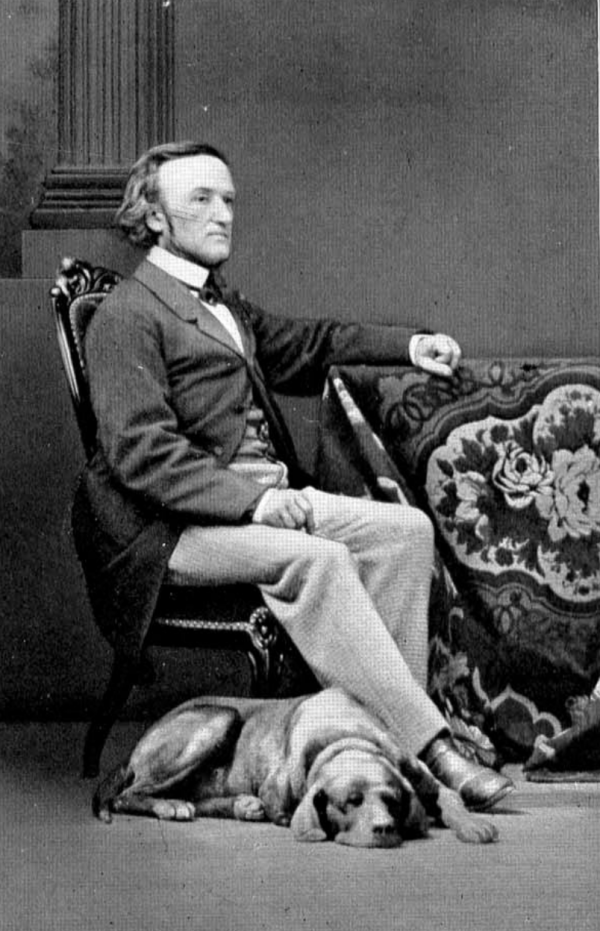
The composer, Richard Wagner, wasn’t the best money manager, and that resulted in his having to flee the city of Riga to avoid imprisonment for debt. Making his departure more challenging was a Bloodhound named, “Pohl” given to him by his Viennese landlord who’d determined that Wagner needed a dog in his life. Unfortunately for the landlord, Wagner left town owing him money, and took Pohl with him after having developed a deep fondness for the dog.
The dog was actually a St. Hubert’s hound described as a “parti-colored Bloodhound” in the book, “Pawprints of History,” and in 1863, he and Wagner arrived in Stuttgart without a dime. They needed a miracle, and it came in the form of a German prince who admired the composer and had the means to support his dreams. The prince paid off Wagner’s debts, installed him in an elegant villa, and provided him a generous stipend. During this time, Wagner wrote his famous three-act opera, Parsifal, and it was Pohl who kept him company.
Sadly, Pohl died of pneumonia while Wagner was in Geneva conducting his work. Wagner was devastated, and upon his return, had the dog exhumed so he could put a necklace containing his name and a written tribute on Pohl’s body. He reburied Pohl in an elegant casket with a marble headstone erected over his final resting place.
Image of Richard Wagner in Munich with his dog Pohl, 1865 from Wikicommons.
